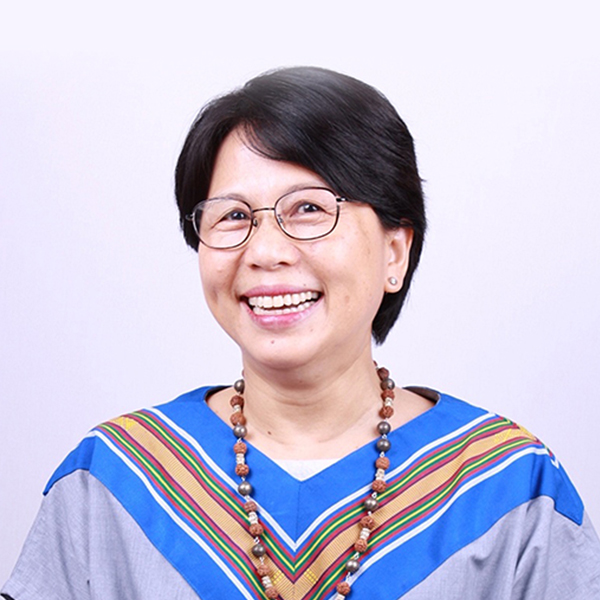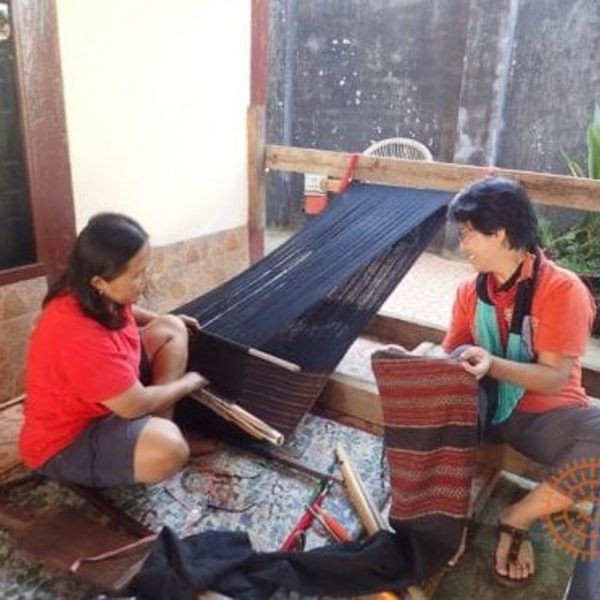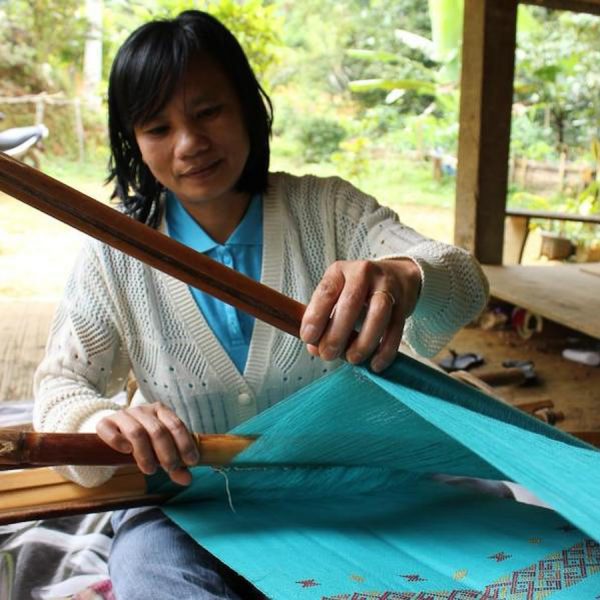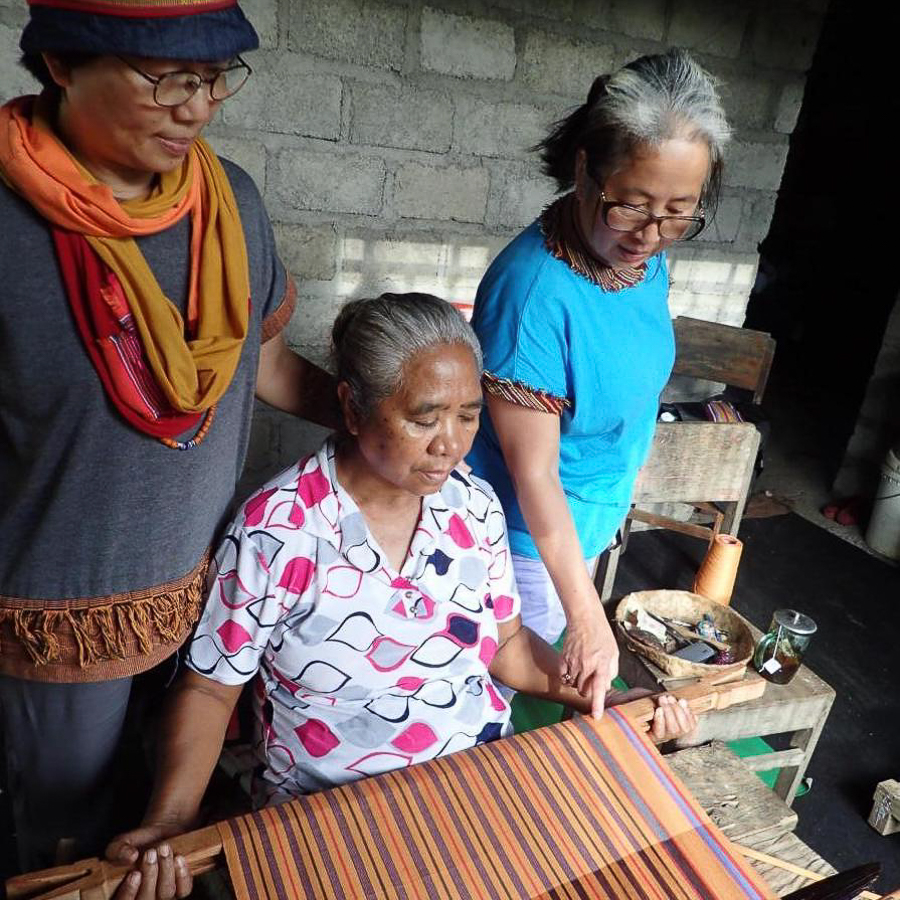At what she assumed would be the end of an emotionally arduous career, Dinny moved to her husband’s small village of Batutumonga nestled in the mountainous regency of Toraja, South Sulawesi. This region is also home to the Torajan ethnic group, known for their elaborate funeral rituals, unique religion, and colorful wood carvings. But once Dinny settled into this picturesque village, she noticed something odd: that many Torajan women returned home from their “work” abroad pregnant, only to give birth and leave again. Dinny started investigating and found out that a lack of economic opportunities in the area led to women seeking work in neighboring countries of Malaysia, Kalimantan, and West Papua.
However, many women could not afford to migrate legally and often fell prey to traffickers, abuse, and exploitative labor practices. Dinny also discovered the women were left with meager compensation after paying exorbitant fees to illegal traffickers. Not to mention the women who never returned: the reported death toll of female migrants was more than 2,500 in 2018, according to TORAJAMELO.
These injustices called Dinny back from her retirement and into action to provide alternative forms of employment for women in Toraja. The Torajan people, like hundreds of other ethnic groups in Indonesia, have a rich textile and artisan tradition dating back hundreds of years. In these traditions, Dinny saw a solution: employ women to weave and sell traditional Torajan textiles so they would not need to risk the dangers of working as laborers in other countries.
Thus, Dinny began TORAJAMELO, meaning “beautiful Toraja” in 2008 to curb outward, exploitative migration patterns by providing women with an alternative, local livelihood source: weaving. TORAJAMELO now works across 10 communities in Eastern Indonesia, training women how to weave and earn an income from their community’s traditional craft. Dinny and her team also provide capacity–building programs to further develop the women’s skills, boost cost-effective strategies, and market their products successfully. Not only has local pride in Torajan artistry and handicrafts been revived, but now thousands of women have the support and tools they need to earn a dignified living and even become the breadwinners for their families.








Good day,
My name is Eric and unlike a lot of emails you might get, I wanted to instead provide you with a word of encouragement – Congratulations
What for?
Part of my job is to check out websites and the work you’ve done with wisestorytelling.org definitely stands out.
It’s clear you took building a website seriously and made a real investment of time and resources into making it top quality.
There is, however, a catch… more accurately, a question…
So when someone like me happens to find your site – maybe at the top of the search results (nice job BTW) or just through a random link, how do you know?
More importantly, how do you make a connection with that person?
Studies show that 7 out of 10 visitors don’t stick around – they’re there one second and then gone with the wind.
Here’s a way to create INSTANT engagement that you may not have known about…
Talk With Web Visitor is a software widget that’s works on your site, ready to capture any visitor’s Name, Email address and Phone Number. It lets you know INSTANTLY that they’re interested – so that you can talk to that lead while they’re literally checking out wisestorytelling.org.
CLICK HERE http://boostleadgeneration.com to try out a Live Demo with Talk With Web Visitor now to see exactly how it works.
It could be a game-changer for your business – and it gets even better… once you’ve captured their phone number, with our new SMS Text With Lead feature, you can automatically start a text (SMS) conversation – immediately (and there’s literally a 100X difference between contacting someone within 5 minutes versus 30 minutes.)
Plus then, even if you don’t close a deal right away, you can connect later on with text messages for new offers, content links, even just follow up notes to build a relationship.
Everything I’ve just described is simple, easy, and effective.
CLICK HERE http://boostleadgeneration.com to discover what Talk With Web Visitor can do for your business.
You could be converting up to 100X more leads today!
Eric
PS: Talk With Web Visitor offers a FREE 14 days trial – and it even includes International Long Distance Calling.
You have customers waiting to talk with you right now… don’t keep them waiting.
CLICK HERE http://boostleadgeneration.com to try Talk With Web Visitor now.
If you’d like to unsubscribe click here http://boostleadgeneration.com/unsubscribe.aspx?d=wisestorytelling.org
You need to take part in a contest for one of the highest quality websites on the net. I most certainly will highly recommend this website!
Everything is very open with a clear description of the issues. It was really informative. Your website is useful. Thanks for sharing!